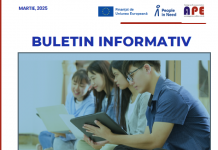Moldovan President Vladimir Voronin has pulled back at the last moment from the brink of a separate deal to put Russia in the driving seat of negotiations on Transnistria. The March 18 joint declaration by Russian President Dmitry Medvedev, Voronin, and Transnistria leader Igor Smirnov triggered that process. A meeting of Voronin and Smirnov in Tiraspol on March 25 was scheduled as next in the sequence, potentially leading to the presentation of a fait accompli by Moscow to the Western negotiators in the 5+2 format.
Voronin, however, pulled out of that meeting -though not necessarily from that process- on March 24, the evening before the Tiraspol event. He had to make that decision under the extreme provocation of Smirnov’s March 24 announcements: including a travel ban on European Union and U.S. negotiators and the offer of basing rights to Russian troops in Transnistria by agreement with the latter, totally ignoring Chisinau. For Voronin to go ahead and meet Smirnov in Tiraspol under these circumstances, would have risked an open breach with the West, as well as an internal political backlash just before Moldova’s general elections (EDM, March 19, 20, 25, 26).
Smirnov’s Nezavisimaya Gazeta interview (see article above) was also deeply embarrassing to Voronin personally. It shattered all the assumptions and hopes that Voronin had, publicly and almost frantically, invested in the Kremlin during the final phase of his presidency. Smirnov continued humiliating Voronin during a follow-up press conference. He revealed that he had pre-coordinated with Moscow the March 18 declaration, specifically the points that imply the equality of "the sides" (Moldova and Transnistria) and a continuation of Russia’s military presence. Smirnov also disclosed that he had held a 40-minute bilateral meeting with Medvedev in Moscow. And he recounted that Voronin had at the last moment tried to back out of the Moscow meeting, but Medvedev persuaded Voronin to attend after all (Itar-Tass, Olvia-Press, March 24).
This account shattered Voronin’s version of the Moscow meeting, offered ostensibly for internal consumption on the eve of Moldova’s elections. It makes Voronin appear gullible for not suspecting the trap being laid for him, then look subservient by walking into Medvedev’s trap even after having he noticed it. Tiraspol forced Voronin into another u-turn to avoid political damage on the eve of the election.
On the evening of March 24, therefore, Moldova’s Reintegration Ministry announced that Voronin would "refrain from participating in the meeting planned for March 25" with Smirnov in Tiraspol. The communiqué singled out the ban on the entry of EU and U.S. negotiators as evidence that Tiraspol could not be expected to conduct a dialogue with Chisinau in good faith. Chisinau asked Tiraspol to cancel the entry ban as a precondition to genuine dialogue "between the Moldovan president and Transnistria’s leader" -i.e., still allowing for talks below that level. And it paid tribute to Medvedev and the Moscow meeting for promoting direct dialogue between Chisinau and Tiraspol (Moldpres, March 24, 25).
In turn, Tiraspol accused Chisinau of "openly repudiating" the Moscow declaration (Interfax, March 25) -precisely the accusation that the Moldovan communiqué had attempted to avoid by praising Medvedev’s initiative. Reflecting persistent illusions, the government mouthpiece Moldova Suverana claimed in an editorial that Smirnov had in fact thwarted Russia from improving its own relations with the West, which Moscow had supposedly sought by brokering a solution to the Transnistria conflict. Therefore, Russia’s "perfidious partner" Smirnov does not deserve Russian friendship (Moldova Suverana, March 27).
This interpretation stems from the president’s naïve assumption that Russia would facilitate a settlement compatible with Moldova’s territorial integrity, so as to improve Russia’s relations with the West after the invasion of Georgia. It also suggests a relapse into the mindset of vying with Smirnov for Moscow’s favor. This mindset on the part of officials predates the internationalization of the negotiations, but seems to have returned in the endgame of Voronin’s presidency, with Moscow freezing the 5+2 international negotiations and Voronin running out of time in the effort to resolve the conflict during his term of office.
Russia is reacting to these developments in a low key manner and with studied equanimity. Ministry of Foreign Affairs spokesman Andrei Nesterenko and the special envoy for negotiations on Transnistria, Valery Nesterushkin, have again called for dialogue to overcome disagreements between Chisinau and Tiraspol over the Moscow declaration, so as to create -in accordance with that document- the necessary conditions for resuming the 5+2 negotiations (Interfax, March 27).
Those negotiations, however, remain blocked since March 2006 by Tiraspol’s withdrawal at Moscow’s behest. The March 18 Moscow declaration strengthens Tiraspol’s blocking power, Russia’s leverage on Moldova, and its ability to sideline the West in the negotiating framework.






